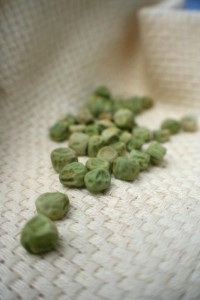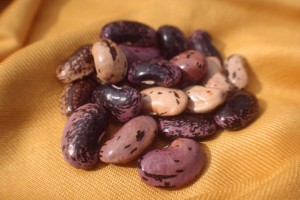Hybrid Hullabaloo
Guest Post
by:
Kathy Olsen, Adult Services Librarian
Curator of the Seed Library of Waynesville
I get asked the following questions on a regular basis, “Why do you accept only heirloom or open-pollinated seeds in the Seed Library of Waynesville? Haven’t farmers been creating hybrids for a long time now? Aren’t hybrid and GMO seeds the same thing?”

I know it can be confusing so let’s explore this issue keeping in mind that I am not a botany expert, I am a librarian that knows in order to learn about something, you read whatever you can get your hands on about the topic from the most reputable sources that you can. So first, let’s define some terms so we are all on the same page.
Heirlooms (aka open pollinated):
An heirloom seed is one that has been handed down for generations in a particular region or area; it is usually hand-selected by gardeners for a special trait. Heirloom vegetables are open-pollinated, which means they’re pollinated by insects or wind without human intervention. Open pollinated varieties or heirlooms are the best types to choose if you want to save seed.

Hybrids (aka F1):
A Hybrid (sometimes referred to as F1) seed results from the deliberate crossing of two different parent varieties from the same species. F1 refers to the “first generation of off-spring” from these two distinct parent varieties. If you plant seed saved from a hybrid variety, you will not get the same result as the parent plant (it will not be ‘true to type”). The off-spring will revert back to the different traits of the separate parent varieties. Natural hybridization is not the same as genetic modification on a cellular level.
GMO Seeds (genetically modified organism):
GMO seeds are different from hybrids as they are not created using natural methods. GMO seed varieties are created in a lab using high-tech and sophisticated techniques like gene-splicing. They are not a cross between related plants such as; when an acorn squash and a sweet dumpling are crossed to get a carnival squash. Instead, GMOs go far beyond the bounds of nature so that instead of crossing two different, but related varieties of a plant, different biological kingdoms are crossed. Here are two examples of this that you may have heard of; corn crossed with DNA from soil bacteria that is naturally immune to the chemical Roundup (http://www.pbs.org/wnet/dna/pop_genetic_gallery/page2.htmland) and goats injected with spider genes to produce milk with proteins stronger than Kevlar for use in industrial products (http://abcnews.go.com/Technology/CuttingEdge/spinning-tough-spider-silk-goat-milk/story?id=98095).
So you can see why it’s so important that we accept only open pollinated seeds into the Seed Library of Waynesville. We must maintain the assurance that a Hubbard Squash seed is going to produce a Hubbard Squash plant! Hybrid seeds are not necessarily a bad thing, it is just important to understand that they can be an inconvenience for a gardener as you cannot save seed from your plants to use the next season. And, for farmers this can be much more than an inconvenience as they are required to buy hybrid seeds every year, a cost that can be prohibitive for some.
Check out the Seed Library of Waynesville, we have an amazing array of seeds this year!
http://haywoodlibrary.libguides.com/seeds
Follow our Blog at www.seedylibrarian.com for updates on new seed additions and all things ‘seedy.’
Happy planting,
Kathy Olsen
Adult Services Librarian
Haywood County Public Library
828.356.2507
